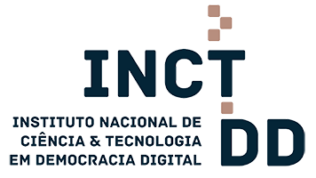Digital Democracy and Government Communication on Social Media
28 de junho de 2023 2023-06-28 15:43Digital Democracy and Government Communication on Social Media
Digital Democracy and Government Communication on Social Media
28 de junho de 2023
The research agenda on digital democracy has now focused on investigating practical experiences and projects aimed at solving problems, rather than developing theoretical-philosophical models associated with the digitalization of democratic processes. Taking this point of departure, the present research project proposes a comparative analysis to understand how government institutions build and disseminate discourses on social media ? more specifically, we consider official institutions and political representatives in Brazil and the United States as case studies. In order to do this, we take into account categories concerning Democratic Theory, Organizational Communication, and Public Governance to evaluate how the organizational and political contexts of both countries influence the discourses of oficial institutions on social media. The methodology encompasses a triangular matrix involving (1) organizational diagnoses; (2) a content analysis considering how both governments use social networking sites (namely Facebook and Twitter); and (3) a metadata analysis on the interaction that official accounts promote on SNSs. Considering the data we have collected, it is possible to assess how and to what degree government institutions in Brazil and the United States use social networking sites: Do they focus on providing spaces for democratic practices (such as participation, transparency, promotion of rights and provision of public services)? Or do they favor a political instrumentalization (particularly personalization and partisanship) of such initiatives? This proposal is relevant since it allows for a critique of government communication in different countries taking into account quantitative and qualitative strategies.
Últimas notícias
- Escola de Inverno oferece cursos de métodos digitais de pesquisa
- Sessão pública de “A Câmara” destaca desafios enfrentados pela bancada feminina
- “A Câmara” revela controvérsias na atuação de deputadas federais em 2022
- Conferência debate estratégias para combater a desinformação
- Nova seleção para pesquisador(a) pós-doc do INCT.DD
2017 2018 2019 Ana Claudia Farranha ana javes luz bolsonaro Camila Mont'Alverne camilo aggio campanha campanha 2018 campanha digital campanhas campanhas digitais Christiana Soares de Freitas ciência ciências sociais Claudia Cappelli Claudio Luis de Camargo Penteado comportamento político comunicação e política congresso democracia Democracia Digital Diego Canabaro discussão política edna miola eleições eleições 2018 escola de verão Francisco Paulo Jamil Marques Internet livro Maria Paula Almada metodologia métodos quantitativos Paula Karini Amorim pesquisa podcast podcast de política polarização Política política em rede relatório de pesquisa transparência whatsapp







